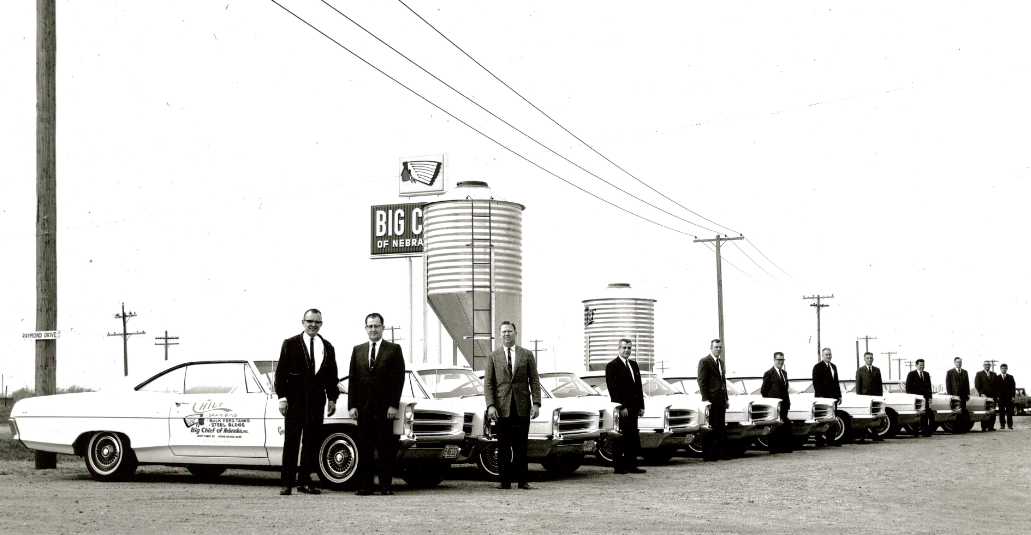
Entrepreneur is a person who organizes and operates a business or businesses, taking on greater than normal financial risks in order to do so.
This definition of an entrepreneur is an accurate depiction of Chief Industries Inc.’s founder, Virgil Eihusen, who built two separate world-wide organizations in his life-time. A long-time friend of Virgil described him as a pusher, someone who always wanted to make things happen. Others remember Virgil as one of Grand Island’s greatest entrepreneurs. While Virgil did organize and operate new business ventures and took financial risks, those weren’t the only characteristics he relied on to become successful.
Chief was founded on these principles:
- A sense of independence to create something new
- A high need for achievement
- A need to belong
- A strong collaboration with external management professionals
- A focus on people
- A lot of hard work and a little bit of luck
When the company was first founded, it was a one-man operation providing construction and remodeling services. Over the last 66 years, Chief has ventured into over 25 different businesses. Some of these changed, others were absorbed, some were sold, and others were abandoned as they no longer provided a solution to a need. Out of these 25+ businesses, only a handful of these ventures were purchased rather than started from the ground up. Two of the seven current business units in operation today were purchased, Chief Carriers in 1973 and Chief Ethanol in 1990.
Chief is known for its ability to consistently grow and adapt to the current economic situation. Entrepreneurs will fail if they are solely focused on expanding their business for profit. A successful entrepreneur is dependent upon having the insight to know when to let go of ideas or products that have less potential in order to focus more energy and time into areas that have greater promise. A successful entrepreneur is one who has the ability and mental aptitude to take risks, but can also recognize when the risk outweighs the reward. This insight is the primary reason why Chief has maintained our current 7 brands (Agri, Buildings, BonnaVilla, Carriers, Construction, Ethanol, and Fabrication) that all provide individualized solutions while supporting one another.
The need to belong is inherent to humans and a critical component for a successful business. Business cannot be prosperous as an isolated entity. It requires the support of a community, the backing of valued stakeholders, the guidance from external management professionals, and the encouragement from local agencies. Chief has long standing relationships with the local and state Chambers of Commerce, the Nebraska Diplomats, the Grand Island Rotary, and many more. The local support of these organizations provides Chief with credibility in the community and in turn, the company creates jobs that enable those workers to reinvest their paycheck in the local community. Just as it takes a village to raise a family, it takes community support to grow a business.
Finally, a company is not sustainable without a focus on its people, a lot of hard work, and a little bit of luck. Virgil Eihusen said it best in his statement to the company in 1981 – “We have to buckle down and get to work. We have a sound company financially, we have good products, and most encouraging of all, we have some of the most capable people in the world working for Chief. If we all give our best, we’ll be in a position to continue to grow and prosper.” Even in the difficult times, the management team always pushed forward and focused on the power of the diversity of the organization to carry them through to the next year when the economic climate turned.
Virgil Eihusen was at the helm of creating this company. However, he never lost sight of what helped him grow so quickly and successfully – the people. Chief remains committed to providing unparalleled personal attention to our stakeholders while seeking innovation and quality in every product and service we provide.

